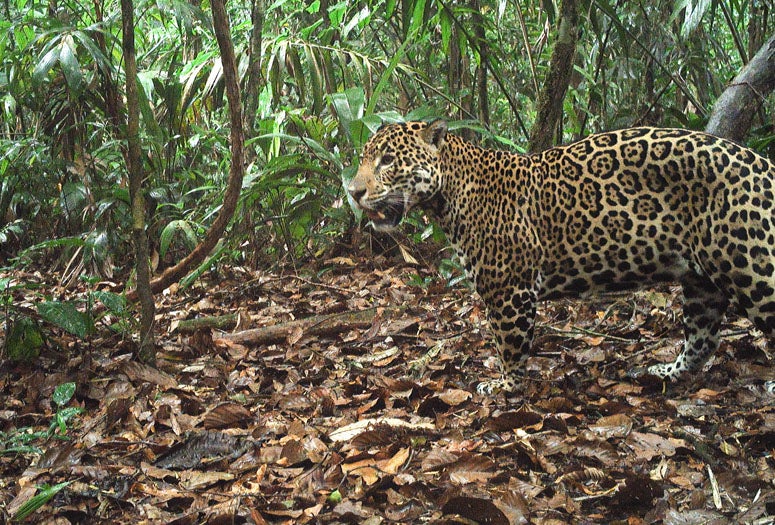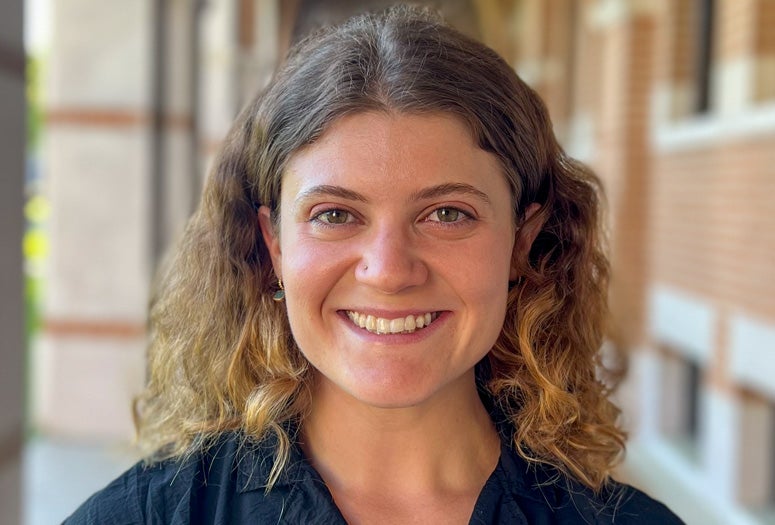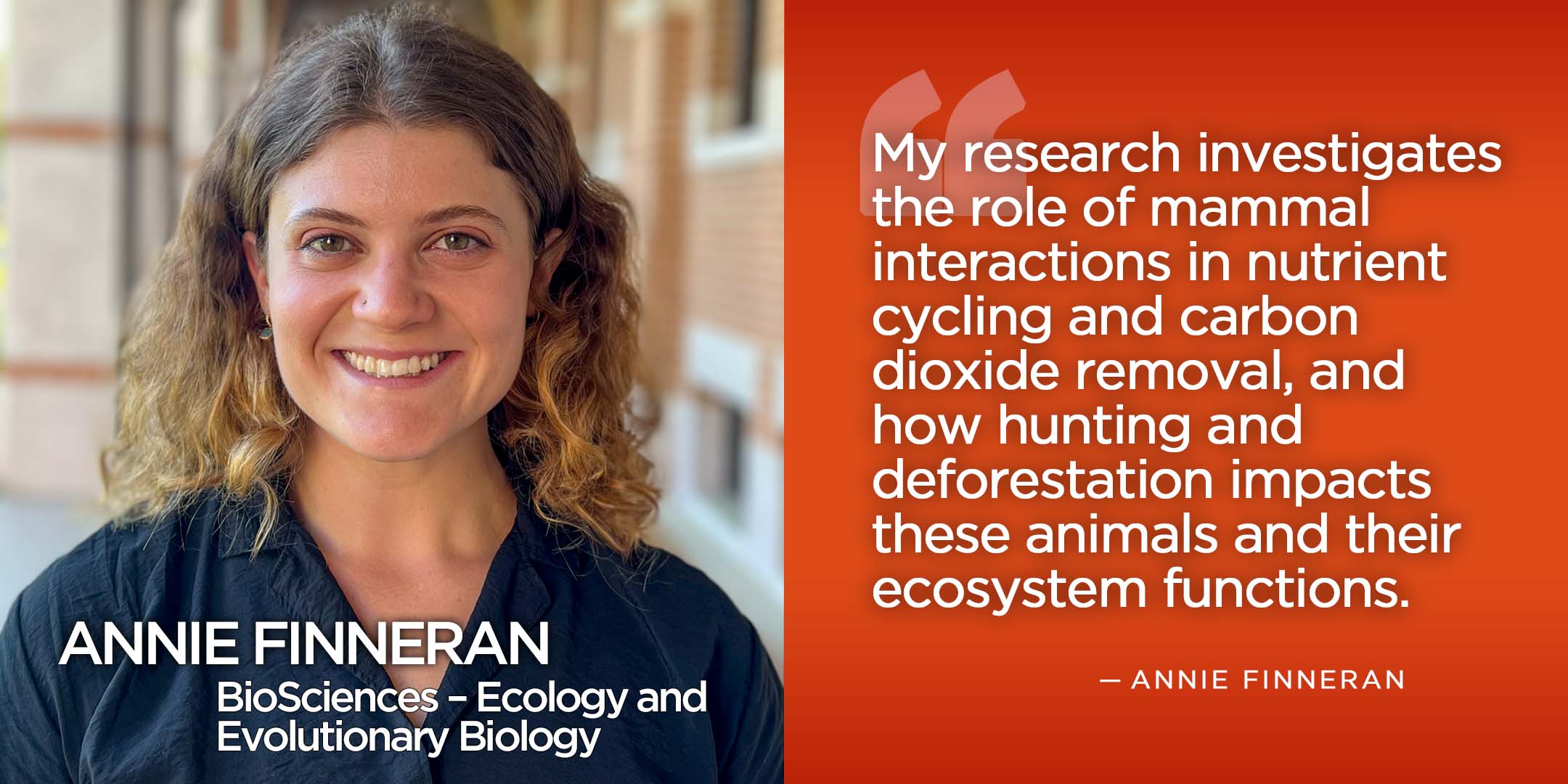-
Meet Annie
-
Graduate program: BioSciences – Ecology and Evolutionary Biology PhD Program
Year in graduate school: Third
Expected graduation date and degree: May 2027, PhD
Hometown: Schaumburg, Illinois, United States
Connect: Annie on LinkedIn: Annie's Website
-
What is the problem your project addresses?
-
Nature-based solutions are sustainable practices (e.g., environmental management and engineering) that integrate natural features into the environment to promote climate resilience and my research intends to contribute to these solutions while also contributing to biodiversity. My research investigates the role of mammal interactions in nutrient cycling and carbon dioxide removal, and how hunting and deforestation impact these animals and their ecosystem functions.
- Add scholarly depth for a specialist in your field.
-
The distribution of animal body sizes within communities affects the ratios of nutrients distributed to plants through animal feces and carcasses due to fixed stoichiometric ratios that vary with herbivore body size. My proposed research will directly test links between animal assemblages and the critical ecosystem functions that mammals provide by integrating remotely sensed field data on mammals and vegetation, field decomposition data, laboratory analysis of soil samples, and sophisticated quantitative modeling.
I will quantify (1) the impacts of local variation in community composition on food web structure; (2) the effects of food web structure on energy flux and nutrient cycling; and (3) the timescale of changes in nutrient cycling and carbon dioxide removal according to mammal exclusion experiments.
- Describe any products from your work so far that you’d like to highlight.
-
I have been fortunate to partner with the Rice Research Experience for Teachers (RET) program for two summers now and work with a fantastic teacher, Patricia Juarez. We have examined camera trap and acoustic data from my fieldwork in Costa Rica, and this past summer we partnered with Precinct One of the Harris County Commissioners Office to run soil sampling on two nature reserves in the Houston area to monitor their restoration. I have visited Patricia’s classroom twice as well and had a great time teaching the kids about ecology, a field of study that I had no idea existed when I was a kid (but look at me now!).
So far, my most tangible product is a camera trap photo of a jaguar in Costa Rica that was used by the field station I worked with for them to apply for more conservation grants through the government!

Jaguar camera trap image courtesy of Annie Finneran - Are there any publications or creative scholarly items coming out soon that RSI can highlight?
-
I am working on getting my first PhD chapter published but it will be a little bit before that happens.
- Is there any funding your advisor or you would like to acknowledge?
-
I would like to thank the National Science Foundation for granting me a Graduate Research Fellowship this past year. I would also like to thank collaborators in Tanzania for helping me plan the work discussed here, Francesco Rovero, Arafat Mtui, and Steven Shinyambala. And of course, I need to thank Rice and the community here for providing the resources, support, and encouragement to conduct this work and make my dissertation something meaningful and special.
- What do you see as the most pressing sustainability challenge?
-
I think the repercussions of biodiversity loss are not yet fully understood or realized, and we are also unsure how we can properly conserve biodiversity while ensuring cultural and societal needs are met for everyone. There is a lot of dialogue about pathways to sustainability, and I think we need more data and more voices at the table to find our way on this course.
- How do you envision your professional career contributing to solving sustainability challenges?
-
Robust results to my research questions could yield a new carbon credit focused on biodiversity conservation, which can assist in funding conservation expenses historically covered by international tourism and hunting, sources that can be heavily impacted by issues such as COVID-19. In addition to the current technology used to bolster a forest’s potential to sequester more carbon, it is prudent to also harness the power of the existing interworking ecosystem.
- What are your career aspirations post-graduation?
-
I am still exploring the potential specifics of my career, but I know I want to work with an interdisciplinary team focused on the conservation of ecosystems in conjunction with human well-being.
- Is there anything else you would like to share about your experience or achievements in the program?
-
Thank you for the opportunity!


